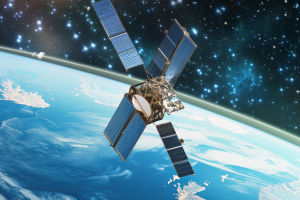When we think about rockets, we often picture them blasting off into space, carrying astronauts or satellites to distant destinations. But did you know that rockets have a lot of weird and surprising facts that we don't usually hear about?
In this article, we'll take a look at 10 strange and fascinating facts about rockets that are sure to spark your curiosity. These fun and surprising details will make you see rockets in a whole new light!
15 Mind Exploding Facts About Rocket Science
Video by LET ME KNOW
1. Rockets Were Inspired by Fireworks
It might be hard to believe, but the very first rockets were inspired by fireworks! Hundreds of years ago, the Chinese used gunpowder-filled tubes to create fireworks. These early rockets were simple, but their power eventually led to the development of space rockets. So, next time you see fireworks, remember—rockets have their roots in these early explosive displays!
2. Rockets Can Travel to the Moon in Just 3 Days
Did you know that it only takes about three days for a rocket to travel from Earth to the Moon? Rockets like the Saturn V, which was used in NASA's Apollo missions, are capable of reaching the Moon in just three short days. This might sound like a long time, but considering the vast distance, it's actually pretty fast!
3. Rockets Can Be Recycled
In the past, rockets were thought of as one-time-use only. Once they were launched, they fell back to Earth and were discarded. But with advancements in space technology, rockets are now being recycled! Companies like SpaceX have pioneered reusable rockets that can land back on Earth and be used again. This helps save both time and money, making space exploration more sustainable.
4. Rockets Don't Make Any Sound in Space
While rockets are incredibly loud when launched, once they are in space, they are completely silent. This is because sound requires a medium, like air, to travel through, and space is a vacuum. So, if you were to stand near a rocket in space (which, of course, we don't recommend), you wouldn't hear a thing. It's hard to imagine such powerful machines making no sound at all!
5. The Largest Rocket Ever Built is Taller Than a Skyscraper
The Saturn V rocket, used during NASA's Apollo missions, is the largest rocket ever built. Standing at 363 feet (111 meters) tall, it is even taller than the Statue of Liberty and could easily fit inside a skyscraper! This massive rocket was capable of carrying astronauts to the Moon, a feat that was made possible by its enormous size and power.
6. Rockets Can Go Beyond Earth's Orbit
Rockets don't just stop once they leave Earth's atmosphere. Some rockets are powerful enough to escape Earth's gravitational pull entirely, allowing them to travel beyond Earth's orbit! This ability is essential for missions to other planets, moons, and even asteroids. The idea of sending rockets to destinations outside of Earth's orbit opens up endless possibilities for space exploration.
7. Space Agencies Use Rockets to Study Other Planets
Rockets are not only used to carry astronauts; they also help us learn more about other planets in our solar system. Many rockets launch spacecraft that carry instruments designed to study distant planets, moons, and even comets. Thanks to rockets, we are constantly expanding our knowledge about the universe, uncovering mysteries that were once far beyond our reach.
8. The First Rocket Launch Wasn't Successful
While rockets are incredibly advanced today, their early attempts weren't always successful. The first-ever rocket launch in history, known as the “V-2 rocket,” was developed during World Conflict II. However, its first test flight ended in failure. It wasn't until later that rockets began to evolve and reach space.
9. Rockets Can Be Used for Fun (Not Just Science!)
While we tend to think of rockets as tools for scientific exploration, they can also be used for fun! Some hobbyists enjoy building model rockets that can launch to great heights. These smaller rockets give people a taste of what it's like to launch a rocket without needing a NASA budget! Model rocketry has become a popular pastime, sparking an interest in science and space for many young enthusiasts.
10. Rockets Can Help Predict Weather
Rockets can also be used to predict the weather! Rockets are sometimes used to carry instruments into the upper atmosphere to measure temperature, humidity, and wind patterns. This data is crucial for weather forecasting and helps scientists understand weather systems in greater detail. It's amazing how rockets contribute to something as everyday as predicting the weather!
Conclusion: Rockets Are Full of Surprises!
Rockets are far more than just tools for exploring space. They are complex, powerful machines that have fascinated us for generations. From their fiery beginnings to their ability to travel to other planets, rockets have played a key role in our understanding of the universe. These 10 weird and wonderful facts are just the tip of the iceberg when it comes to what we can learn about rockets. So the next time you see a rocket launch, just remember—there's a whole world of strange and surprising facts behind it!


